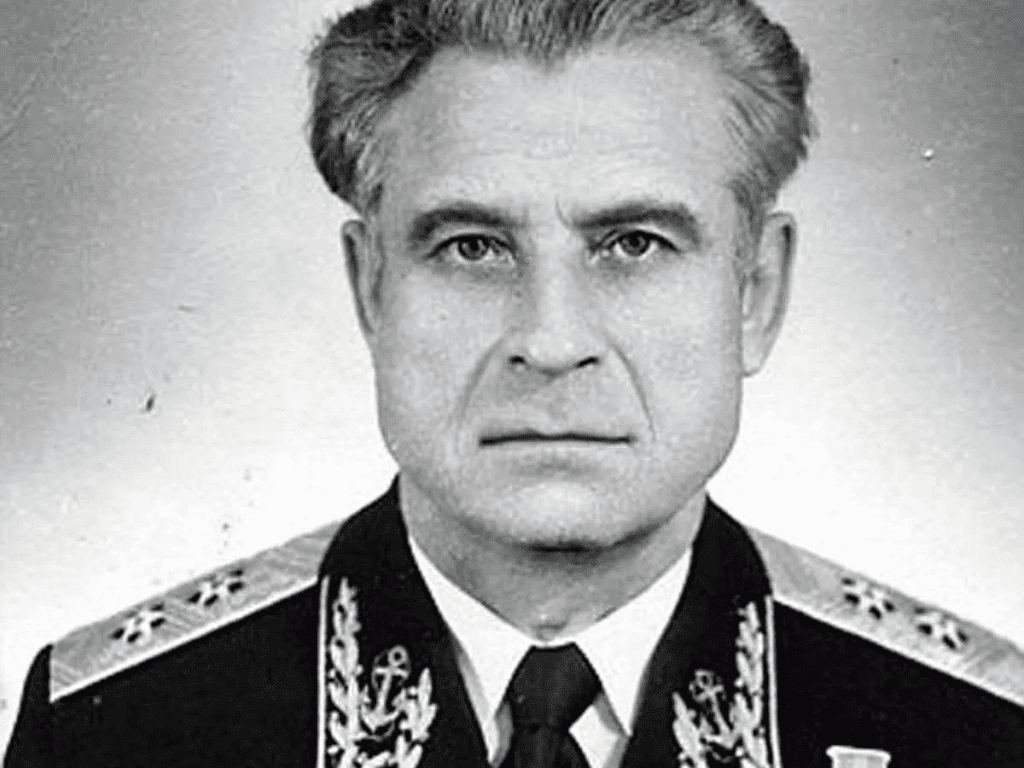In October 1962, the world stood on the edge of nuclear destruction. The Cuban Missile Crisis, a tense standoff between the United States and the Soviet Union, brought both superpowers closer to war than ever before. With nuclear weapons positioned in Cuba and American forces on high alert, the situation escalated into one of the most dangerous moments in modern history.
While presidents and generals played a high-stakes chess game above ground, few knew that the most critical decision of all would take place deep beneath the surface of the Atlantic Ocean. It would not be made in the Kremlin or the White House, but aboard a Soviet submarine and by a man the world would not recognize until decades later.

Life Aboard B-59: A Submarine Under Pressure
As tensions climbed, Soviet submarine B-59 patrolled the waters near Cuba, carrying a powerful secret: a nuclear torpedo. The sub was under strict orders to remain hidden, but it was soon detected by American naval forces. To signal their presence and force the sub to surface, the U.S. Navy dropped harmless depth charges a common method of peacetime communication.

However, inside the steel hull of B-59, the crew had no way of knowing the charges were non-lethal. Isolated for days, exhausted, and suffering in 100-degree heat with dwindling oxygen, the sailors believed they were under attack. Panic and pressure filled the submarine.
A Vote for Doomsday
The Soviet protocol required three officers to agree before launching the nuclear torpedo. Captain Valentin Savitsky, convinced they were at war, gave the order to prepare the weapon. The political officer on board also approved.
Only one man stood between the world and disaster Vasili Arkhipov, the second-in-command.
Video:
This man prevented a nuclear war
Arkhipov was no ordinary officer. He had already proven his bravery during the K-19 nuclear accident a year earlier, where he helped prevent a meltdown. Now, under extreme psychological stress, he was faced with a decision that would define not just his legacy but the fate of humanity.
The Decision That Changed Everything
Unlike his fellow officers, Arkhipov insisted that no attack should be made without clear confirmation from Moscow. He refused to authorize the nuclear launch. His calm resolve and moral clarity broke the chain reaction that could have led to World War III.
Reluctantly, the others agreed. The submarine surfaced, signaling that it was not engaging in hostilities. The crisis deescalated shortly after, with both the U.S. and the Soviet Union reaching a peaceful agreement.
But Arkhipov’s role remained hidden for decades.

The Silent Hero History Almost Forgot
It wasn’t until years later, following the release of declassified documents, that the public began to understand the full weight of Arkhipov’s actions. Historians and military analysts now agree that if the torpedo had been launched, it would have triggered a full-scale nuclear war killing millions and changing the course of human civilization.
Video:
The history of the Cuban Missile Crisis – Matthew A. Jordan
Yet, in his lifetime, Arkhipov never sought fame. He continued his naval career, eventually rising to the rank of vice admiral, and passed away in 1998 largely unknown outside military circles.
Why Vasili Arkhipov Still Matters Today
In an age where leaders are often measured by bold gestures and loud declarations, Arkhipov’s legacy is a quiet reminder that true heroism often happens in silence. He acted not out of glory or fear, but out of a sense of responsibility and calm under pressure.
His decision illustrates how a single moment, and a single individual, can change the entire trajectory of history. It’s a powerful example of the importance of critical thinking, restraint, and moral courage qualities we need now more than ever in an unpredictable world.

Conclusion: One Man, One Choice, One World Saved
The Cuban Missile Crisis is remembered as the ultimate Cold War standoff. But it is Vasili Arkhipov, a man trapped inside a submarine and facing impossible odds, who ultimately preserved peace when everything was poised to fall apart.
The next time we talk about world-saving acts, we should remember that sometimes, the most heroic choice is the one not made. Arkhipov didn’t fire. And because of that, we are all still here today.


